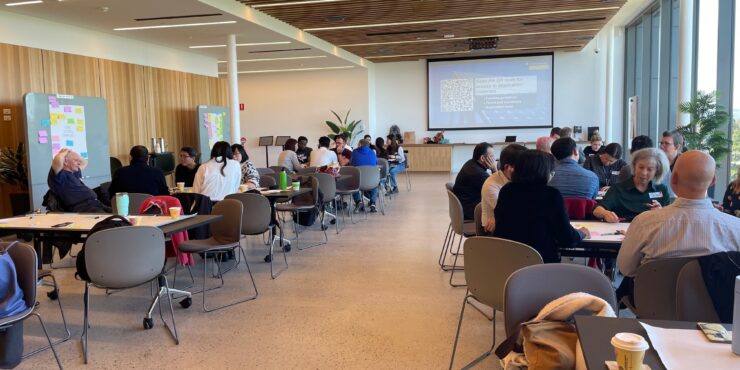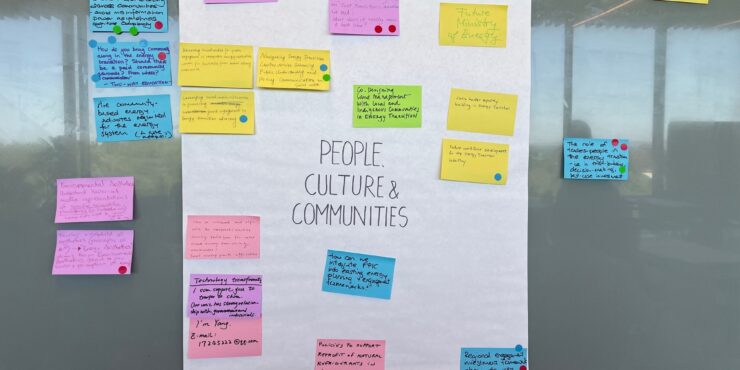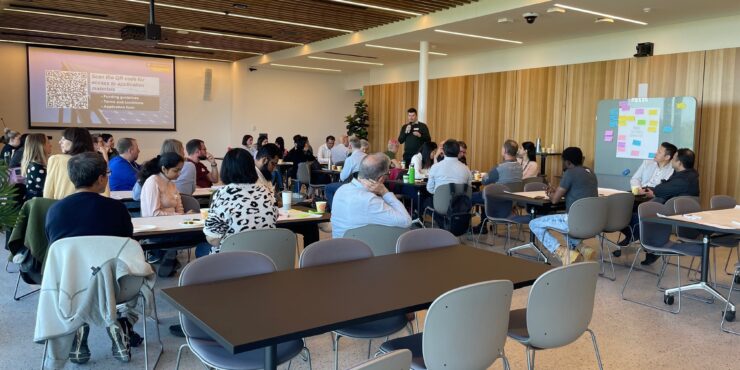Energy research seed funding
Curtin Institute for Energy Transition has launched our inaugural round of seed funding! We look forward to supporting the growth of innovative, multidisciplinary energy research projects at Curtin.
On 02 September 2024, CIET hosted a group of researchers, including PhD students, for an ideation workshop and networking session. Starting with a speed dating session, researchers from more than six Schools got to know each other and heard about the diverse range of energy research happening at Curtin.
Researchers individually developed their own energy-related project ideas and voted on the most interesting projects. After breaking into groups based on their project of interest, researchers worked together to create the foundation for their project idea and funding application team.
2024-25 Funded Projects
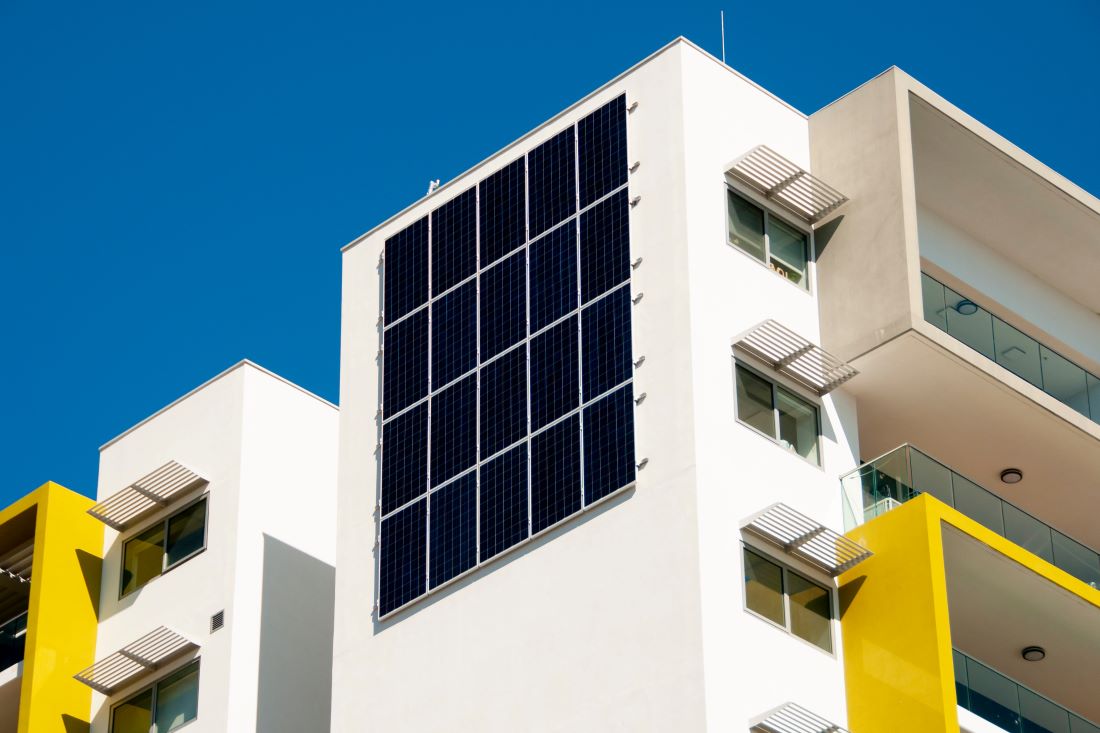
CIET funded
The myths and realities of energy efficiency in apartment buildings: A case of greenwashing
Greenwashing is a significant issue for a just and viable energy transition. It leads to market
distortion and erodes trust and confidence, reducing the speed and impact of genuine action.
This project will employ focus groups and interviews to interrogate energy efficiency and
sustainability claims in “off-the-plan” apartments in Perth (purchased pre-build). It will
explore buyer and industry perceptions (planning, development, sales, investment) on how
well the finished product aligns with initially advertised features and answer questions of
influence on market outcomes, such as purchase decisions. A diverse team of award-winning,
high-impact researchers will conduct the project and use results to inform a subsequent
discrete choice survey project, revealing broader greenwashing effects on purchase
behaviours. It could also lead to the development of sentiment-based, AI-supported
greenwashing detection software. The project will engage academia, policymakers, and the
public with outputs leveraging the team’s extensive experience in journal, media, and policy
publications.
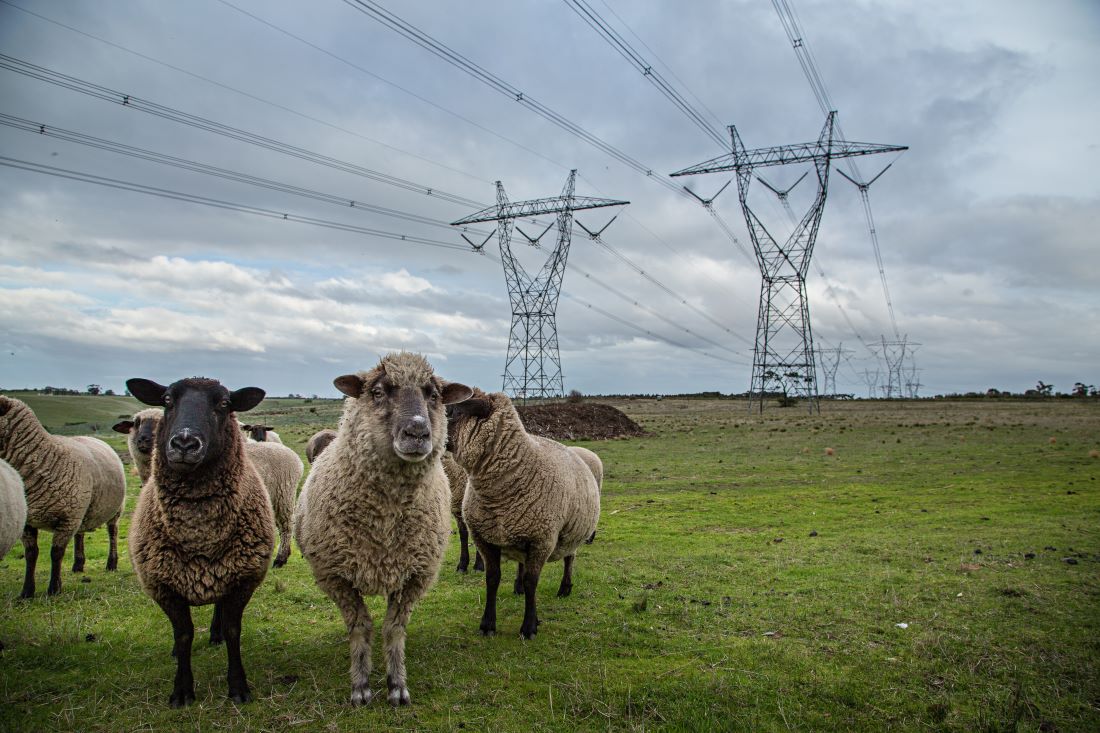
CIET funded
Energy transition discourse in regional communities: Enhancing public understanding and regional community engagement
This project aims to identify public discourse of energy transitions in regional communities
and to optimise community engagement. It will focus on communities at different stages of
the transition process: Busselton (planned), Kojonup (ongoing), and Albany (completed). The
project will identify prevalent narratives and discourse in these local communities by
examining public discourses in the digital space, such as local forums and social media.
Comparing these three communities will provide nuanced insights into how energy transition
is discussed and framed as a result of the stage of energy transition project implementation.
This analysis will inform the development of targeted strategies to enhance public
understanding, address misinformation, and refine community engagement approaches
specific to each region’s context. Ultimately, this research aims to foster a more informed
public discourse on energy transitions across diverse regional contexts.
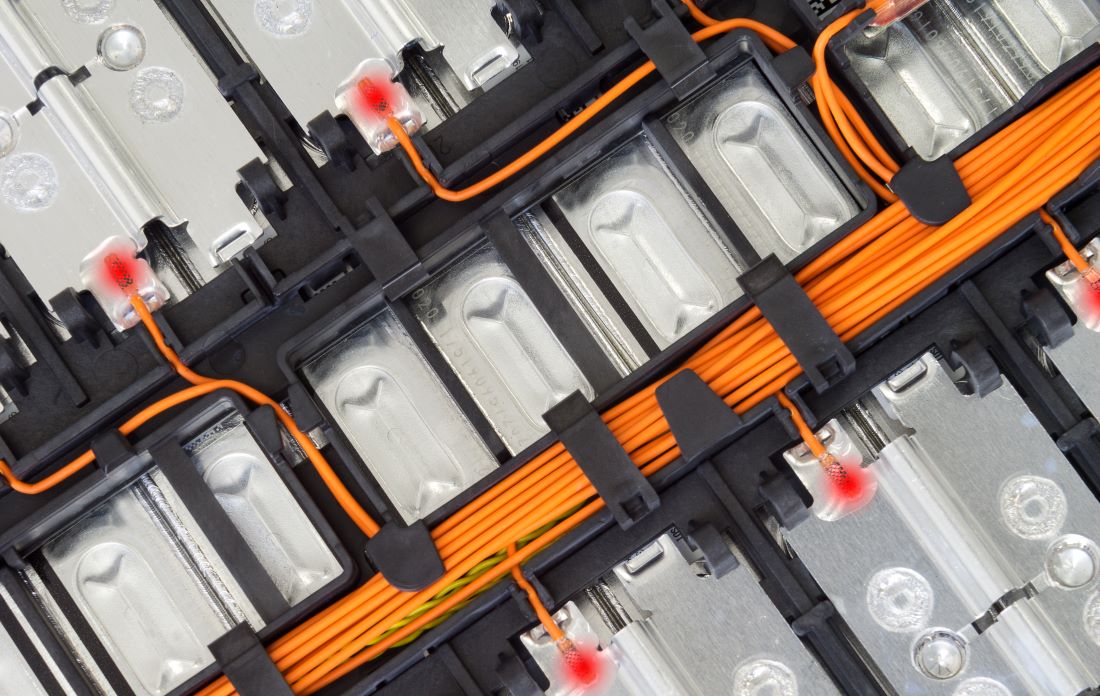
Trailblazer funded
Energy-efficient membrane technology for direct lithium recovery from spent lithium-ion batteries
Lithium-ion batteries (LIBs) are critical for renewable energy storage, but the growing demand and limited lithium supply require efficient recycling. Current recycling methods, e.g., solvent extraction, have high energy consumption and long duration. This proposal introduces a membrane-based process for recovering lithium from spent LIBs, particularly from cathode materials containing valuable metals such as lithium, nickel, cobalt, and manganese. The process uses nanofiltration to concentrate lithium, followed by reverse osmosis to produce high-purity lithium solution, which is then converted into battery-grade lithium carbonate. This method reduces energy use and improves recovery efficiency. An economic evaluation will follow to assess the technology’s feasibility by analysing costs, energy use, and potential revenue from recovered lithium. The goal is to ensure the process is economically viable and sustainable compared to existing recycling methods, addressing both environmental and financial challenges of LIB recycling.
Help us discover what ‘different’ really looks like and realise a new and sustainable future.



